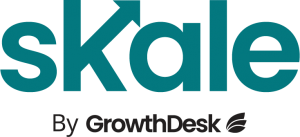Many expats are flocking to the Philippines as it has experienced significant economic growth over the past few years. Are you one of them? Or are you thinking of joining the club?
As an expat myself, this article will explain how to open a successful business in the Philippines. If you are still considering whether it is a worthy investment – let me tell you right now that it is relatively easy once you understand how things work! So read on to make the most out of your investment.
1. What Type Of Business Can You Set Up? [restrict]
Sole Trader: This is not an option for foreigners as expats cannot operate as sole traders in the Philippines. The only exception is when your business is more of a corporation with a large capital down payment.
Sole Proprietorship: Have a Filipino spouse? Your spouse will own the business in your name. However, this option will give you more autonomy and lower costs as there is less government regulation.
Partnerships: These are better to avoid as you would need a large amount of capital to keep your small business afloat.
2. Connect With The Local Community
Don’t assume that your business can be sustained by the expat community alone. It is still important to engage with the local community as well. After all, you are in their home country and even though the area you are in may be westernised, make sure that your business is welcoming and supportive of locals and that you respect their culture and their working style.
Expect some competition as well. Some may even be resistive to your venture. But keep your head up and continue serving the entire community and soon enough you may even be working with them!
3. Set Up Your Business Now
The first thing to do is to verify and reserve your company name, This can be done online with the security and exchange commission. Please note that this will cost P40 for the first month and a subsequent P120 for the next three months.
A minimum capital fee at 5000 pesos is required for the registration.
Your business must be registered with the security and exchange commission and receive your tax identification number. This can be done online as well but make sure that that you have the right documents with you such as the name verification, assets & liabilities, notarization, ownership and personal documents as well.
Actionable Takeaway:
Make sure to research the market conditions in the Philippines and know it super well. Don’t make the mistake of assuming that it is the same as your home country!
[/restrict]





